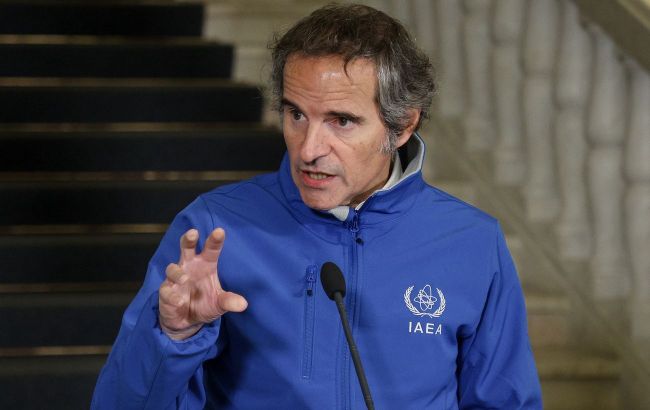Zaporizhzhia nuclear power plant will require a special status if peace is reached in Ukraine, IAEA chief says
 Photo: IAEA Director General Rafael Grossi (Getty Images)
Photo: IAEA Director General Rafael Grossi (Getty Images)
The Zaporizhzhia Nuclear Power Plant will require a "special status" and a cooperation agreement between Ukraine and Russia if a peace deal is reached, said IAEA Director General Rafael Grossi.
Russia seized the Zaporizhzhia plant, Europe's largest nuclear facility with six reactors, in the early weeks of its invasion of Ukraine. The plant is no longer generating electricity, but both sides regularly accuse each other of military actions that threaten nuclear safety.
"Whatever side of the line it ends up, you will have to have a cooperative arrangement or a cooperative atmosphere," Grossi said.
Ukrainian and US officials are trying to finalize a draft peace plan that includes provisions for the plant's future. According to the IAEA chief, without peace, there remains a risk of a nuclear accident.
"No single operator can use a nuclear power plant when across the river there is another country which is resisting this and may take action against that," he stressed.
Earlier, RBC-Ukraine sources reported that Ukraine and the United States have agreed on most provisions of the peace plan, including the size of Ukraine's Armed Forces, the status of the Zaporizhzhia plant, the format of prisoner exchanges, and the return of convicted individuals.
Zaporizhzhia NPP blackout
On November 19, Ukrainian energy workers restored power to the temporarily occupied plant. The high-voltage line supplying the facility had been damaged for an extended period due to Russian attacks.
On September 23, Energoatom reported the plant's tenth full blackout since the start of Russia’s full-scale invasion.
Russian forces deliberately refused to reconnect the plant to Ukraine’s power grid. Meanwhile, the only external transmission line linking the plant to Ukraine’s networks went out of service.

